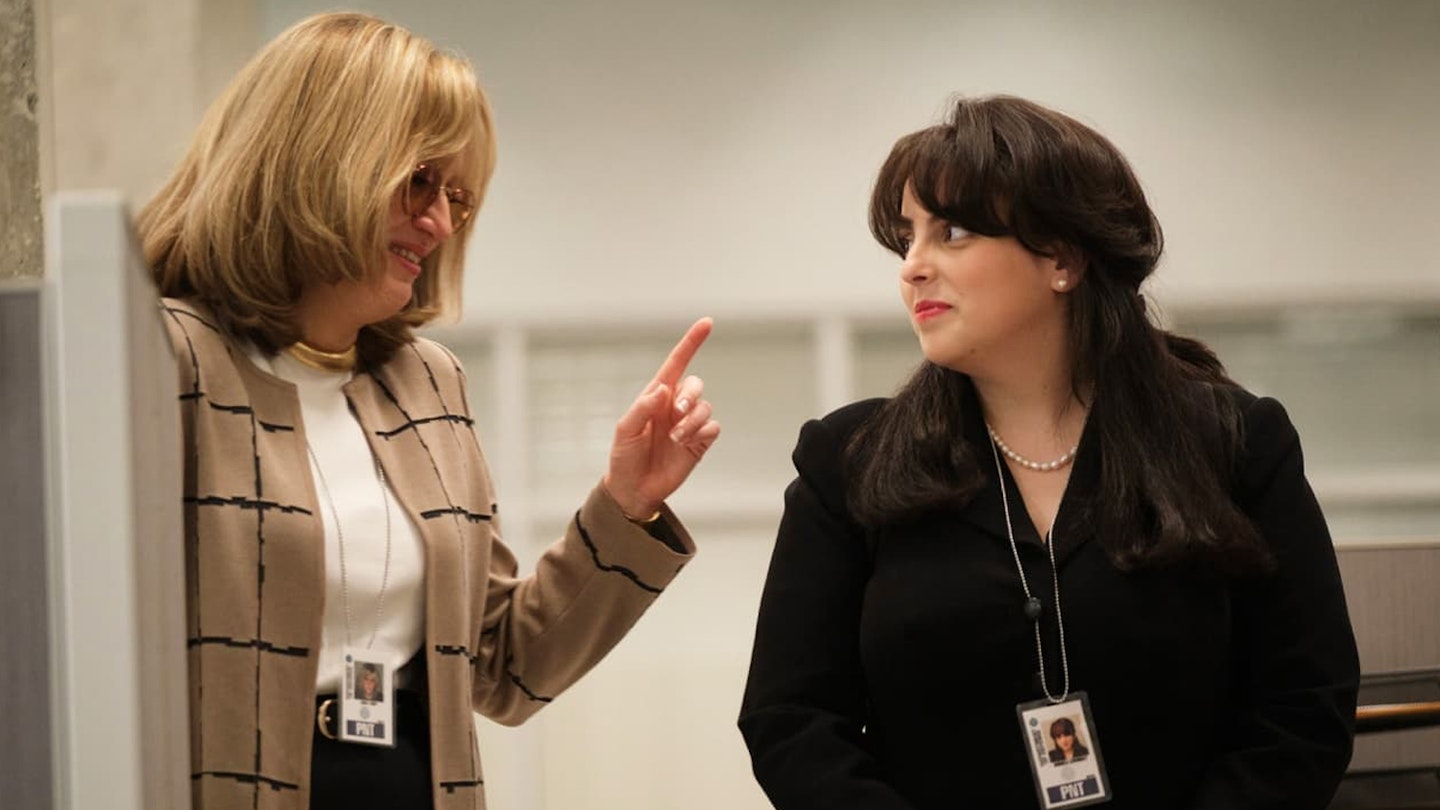Airing on: BBC Two
Episodes viewed: 5 of 10
Just about every grotty little detail of President Bill Clinton’s affair with Monica Lewinksy has been picked at over the last two decades. There’s not a lot left to know. In 1998, Clinton lied under oath about his ongoing relationship with the one-time White House intern. It was that lie, not the affair itself, that saw him impeached, and which puts the Crime in American Crime Story. The latest in Ryan Murphy’s anthology series is not here to simply recreate known events with a cast of famous people. Just as with his OJ Simpson and Gianni Versace series, Impeachment has a lurid tabloid surface appeal, but underneath it has smarter things on its mind.

Impeachment is less about Lewinsky (Beanie Feldstein) and Clinton (Clive Owen) than it is about Linda Tripp (Sarah Paulson) – a long-time government employee who spent time in the White House and Pentagon, and who was Lewinsky’s friend (or so she thought) and confidante. After Lewinsky told Tripp about the affair, Tripp began taping the conversations, which she passed to the FBI.
A very intelligent show about the fragility of the political world and its unending underestimation of women.
Tripp’s claims that her actions were driven by patriotism is something Impeachment scoffs at. In the series’ telling, Tripp may have convinced herself she was doing it for her country, but really she was motivated by a desire for attention. That sounds petty, and it is, but everyone here is motivated by attention. Clinton isn’t satisfied with the country showing its approval – he needs the intimate attention of younger women. Lewinsky grows addicted to the attention of the most powerful man in the world. Various provocateurs see the story as a way to forge a media career. But nobody ever gives Tripp attention, so she’ll demand it. And just one unhappy person with the right information can bring great power toppling down.
It will surprise nobody that Paulson is extraordinary as Tripp. She plays her as a lumbering, joyless woman, her presence a total bummer. With giant glasses and hair that almost entirely shrouds her face, she’s hard to properly discern. In a crowd you’d never notice her. And oh god, she wants to be noticed. Tripp is desperate to matter. The show opens with her boss, Deputy White House counsel Vince Foster (Matthew Floyd Miller), committing suicide after a scandal. Linda is certain the police will want to speak to her, but nobody cares. She’s moved from the White House to a dull job at the Pentagon. Linda believes this is an act of vengeance. It isn’t. Nobody is thinking about Linda. Paulson plays the unspoken desperation of her loneliness, so there’s a shred of sympathy for her, but it is just a shred. Almost every action seems designed to make someone else worse off rather than improve her own lot.

Nobody comes out of this story well. Clinton, played on the edge of parody by Clive Owen, may be the leader of the free world but is so emotionally immature he buys his secret girlfriend teddy bears. Lewinsky (who is a producer on the show) starts out as an over-excited young woman wrapped up in the thrill of an affair, until things go sour and she starts using her connection to advance her career. Even Paula Jones (Annaleigh Ashford), who is suing the President for sexual harassment, initially wants just an apology but is swayed by dollar-signs and fancy lawyers. Stay in DC long enough and it will rot your morals away.
As with previous ACS series, there’s a strange campness to the presentation, particularly jarring here in the sober strip-lit beigeness of the White House. It’s as if it’s afraid to entirely remove tongue from cheek. Murphy likes to put his cast under heaps of prosthetics, which doesn’t really have the effect of making them look like their real-life counterparts, more ready for an SNL skit. Ashford’s fake nose looks borrowed from the Child Catcher. As silly as some of it may look, it’s just a garish mask on a very intelligent show about the fragility of the political world and its unending underestimation of women.
In the second episode, frustrated when Lewinsky is surprised by her ability to predict people’s actions, Tripp snaps, “I have a gift, Monica, it’s just no-one sees it.” If anybody had really seen her, had anyone given her the attention she craved, Tripp may never have exposed the affair and American politics may not have been dragged into the gutter, where it still moulders now. Even if her colleagues didn’t, Tripp made sure history would remember her.
